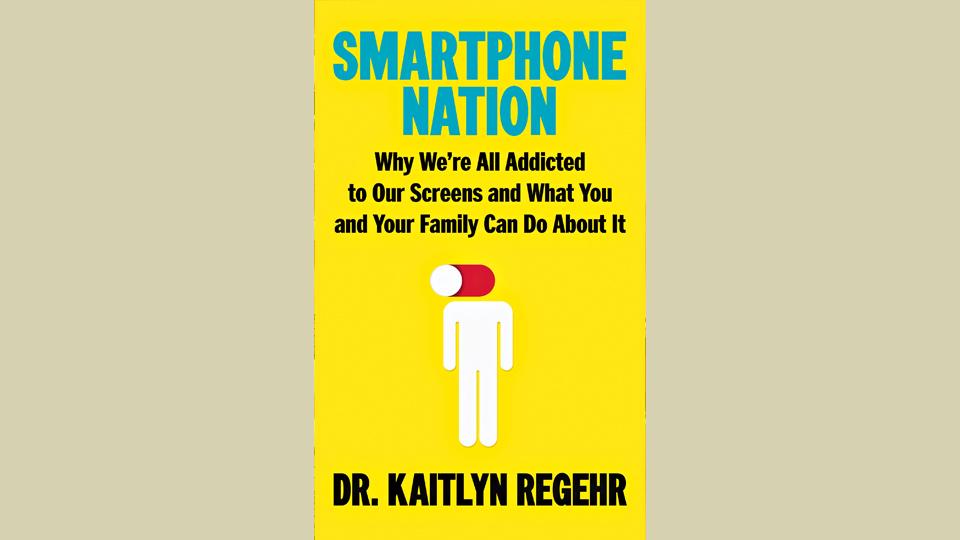
Smartphone Nation: Dr. Kaitlyn Regehr’s new book empowers and teaches families how to thrive in this digital age of smartphones
Since the introduction of the smartphone three decades ago, this digital technology has become so intertwined in our lives that it’s hard to imagine what life was like beforehand. Owning a personal smartphone has become so normalized that many children are introduced to digital devices before their first birthday. On average, children are receiving their first smartphone before their 12th birthday. By the age of 14 years, over 90 per cent of children have their own smartphones.
There is no denying the numerous benefits that smartphones offer personally, academically and professionally. Almost everything we need or want is accessible almost instantly within the palm of our hands. But there is also a darker and more addictive side to smartphones that can’t be ignored.
Dr. Kaitlyn Regehr’s book, Smartphone Nation: Why We’re All Addicted to Our Phones and What Your Family Can Do About It discusses the benefits and pitfalls of smartphones including microdosing, echo chambers, over sharing, misinformation, algorithms and online scams. She gives real life examples and provides sound advice, exercises and tips so her readers learn to navigate the digital world safely.
Dr. Regehr is a global expert on digital literacy whose research mainly focuses on the impacts of smartphones and social media on youth. Her book discusses everything families need to know about smartphones so adults and children can thrive in this digital world.
Smartphone Nation: Why We’re All Addicted to Our Phones and What Your Family Can Do About It prioritizes smartphone usage in a pyramid style format that clearly outlines from top to bottom when and how people should be using their smartphones to avoid passive scrolling and addictive behaviours that can open the door to negative microdoses of information.
Dr. Regehr talks candidly about this more dangerous and addictive side of smartphones. For example, she explains how algorithms are used to limit the information users see and the harmful effects this can have.
By the end of the book, readers learn how to spot harmful microdoses and manage algorithms, catch misinformation, improve their digital viewing and protect personal information to create a more healthy and positive viewing experience. She provides concrete examples, tips, science-backed strategies and doable exercises so parents have the knowledge and tools needed to safeguard their children from harmful content.
She also discusses the dangers of sharing personal information online. Parents sharing their child’s birth, schooling and other accomplishments on different social media platforms isn’t seen by friends and family only. Scammers can easily access this information and save it in databases so they can use it later to steal the child’s identity and banked savings in their adult years.
Smartphone Nation: Why We’re All Addicted to Our Phones and What Your Family Can Do About It provides alarming information and statistics on this topic, as well as tips and advice so parents can share information about their children with their closest friends and family more safely and securely.
Dr. Regehr earned her PhD from Kings College London in London, England. She is an Associate Professor and Programme Director of Digital Humanities at the University of College London.
She is often the topic specialist and producer of documentaries shown on BBC News, Discovery Channel, Channel 4 and the Discovery Channel. She’s also spoken publicly on radio shows, podcasts and other public events.
Smartphone Nation: Why We’re All Addicted to Our Phones and What Your Family Can Do About It will be available this month in most bookstores as well as online.





